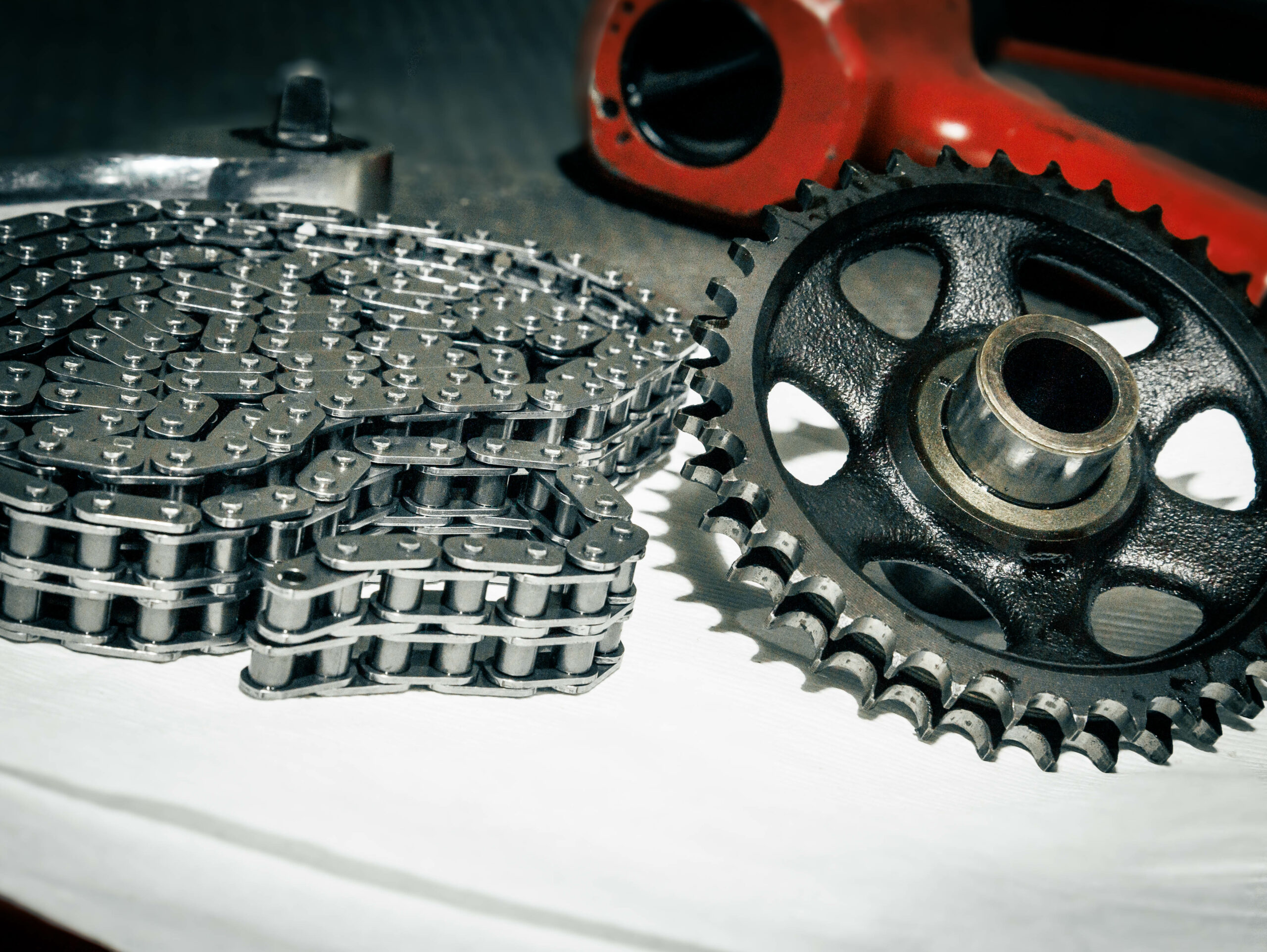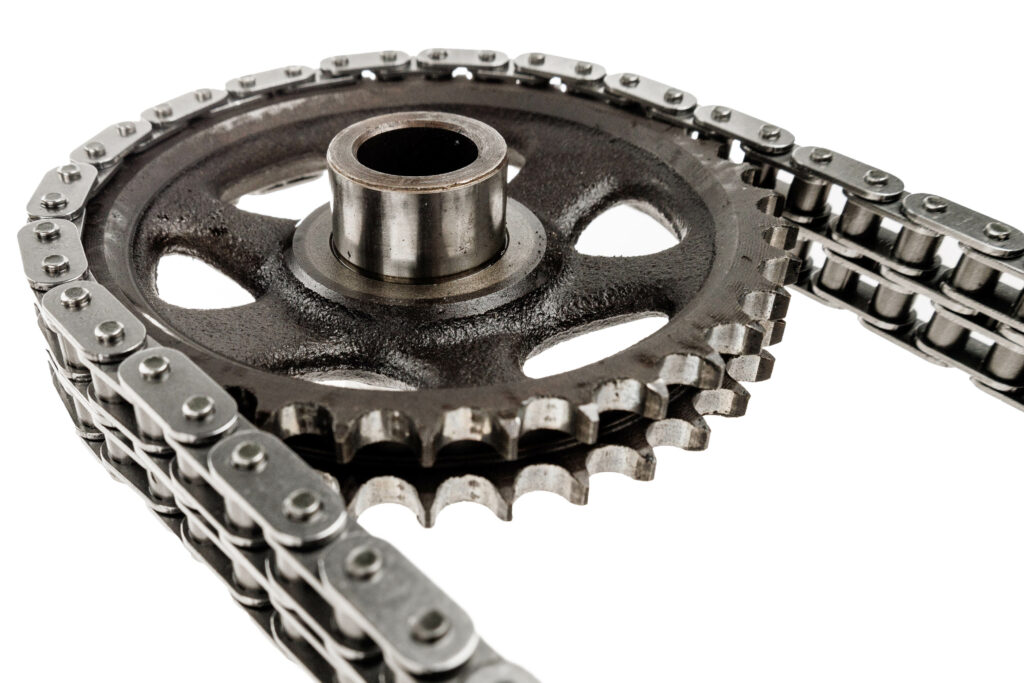When it comes to ensuring the seamless operation of your Mercedes-Benz, the timing chain plays a pivotal role. Acting as the bridge between the camshaft and crankshaft, the timing chain ensures the engine’s timing remains precise. A malfunctioning or worn-out timing chain can be a precursor to more serious engine problems. For Mercedes-Benz vehicles, understanding the complexities of Mercedes-Benz timing chains and identifying common timing chain problems can be crucial in maintaining engine performance and longevity.
How Long Does a Mercedes Timing Chain Last?
Mercedes-Benz vehicles are celebrated for their robust engineering and superior performance. Part of this performance is thanks to the reliability of Mercedes-Benz timing chains. Generally, if maintained correctly and subject to normal wear and tear, a Mercedes timing chain can last between 80,000 to 120,000 miles. However, the actual lifespan can vary based on driving habits, maintenance practices, and other factors.
Common Timing Chain Problems in Mercedes
Several signs can indicate potential timing chain issues with your Mercedes-Benz. Here are a few common symptoms and causes:
Rattling Sounds: One of the earliest indications of a worn-out timing chain is the presence of unusual rattling sounds from the engine. This typically happens due to stretched chains or worn chain tensioners.
Check Engine Light: An illuminated check engine light can sometimes point towards timing chain problems. Although it can be triggered by a variety of issues, a malfunctioning timing chain can be one of them.
Metal Shavings in Oil: If there are metal shavings found during an oil change, it’s a red flag. It’s often a sign that the timing chain is wearing down, shedding metal as it grinds against other engine parts.
Engine Performance Issues: A faulty timing chain can impact engine performance, leading to reduced acceleration and efficiency.
The Cost of Replacing a Mercedes-Benz Timing Chain
The timing chain replacement cost for Mercedes models can vary widely, depending on the model, labor charges, and any additional parts that might be needed. It’s essential to opt for high-quality parts, such as those found in the Mercedes Timing Chains For Sale category at Adsitco, to ensure durability and optimal performance.
Importance of Chain Tensioners and Other Engine Parts
The timing chain isn’t the only component to consider. Chain tensioners, which ensure the chain remains taut and in its correct position, are equally important. Any slackness can lead to chain breaks or misalignment, affecting the engine’s timing. Additionally, staying updated with other Mercedes-Benz engine parts can help in maintaining a healthy engine and preventing timing chain failures.
Key Complexities of Mercedes-Benz Timing Chains
Mercedes-Benz engineering is unparalleled, and with it comes the intricacies. Mercedes timing chains info reveals that they are designed for optimal performance but require expertise during replacements. Their synchronization with the camshaft, crankshaft, and other essential engine parts means that any misstep during replacement can lead to engine damage or reduced efficiency.
Final Thoughts
The timing chain is a vital component of your Mercedes-Benz, ensuring that the engine functions correctly. Regular check-ups, understanding the common timing chain problems in Mercedes, and addressing them promptly can save you from costly repairs in the long run. And when it comes to replacement parts, trust the experts at Adsitco to provide quality Mercedes-Benz parts that uphold the luxury and performance associated with the brand.
Product Spotlight
Though unquestionably considered more reliable than rubber timing belts, even the timing chain system could be improved: a dual timing chain system. Just as it sounds, this operates exactly like a normal timing system, but the chain that is used is more like two standard chains stacked together. This system helps prevent the chain from breaking as easily, increasing the time between replacements even further. However, with the introduction of the 3.8L engine to the United States, Mercedes decided on a single timing chain design.
The 116.960 engine (installed in 1981 380SLC models and 1981-1982 380SL models) along with the 116.962 engine in the 1983 380SL had what many consider to be an inferior design due to the lack of the dual timing chain that their European counterparts came with. In the years since, this decision has been a thorn in the side of 380SL and SLC owners who have had to replace these chains time and time again.
Luckily, there is a solution: a complete conversion kit that replaces the old single chain system with the much more reliable dual chain system. It includes everything you need to fully convert your timing chain system including the tightener, rails, gaskets, seals, and more.
To see the timing chain conversion kit in our store, click here.
Frequently Asked Questions
Generally, a Mercedes timing chain, when subjected to regular maintenance and normal wear and tear, is designed to last between 80,000 to 120,000 miles. However, its actual lifespan can vary based on factors such as driving habits, the specific model of the Mercedes-Benz, and how well it’s been maintained over the years.
The cost to replace a Mercedes-Benz timing chain can vary widely depending on factors like the model of the vehicle, the region, labor charges, and if any other parts need to be replaced simultaneously. On average, you might expect to pay anywhere from $1,000 to $1,500 for parts and labor. For exact costs tailored to your Mercedes-Benz model and requirements, consider visiting the Mercedes Timing Chains For Sale page on Adsitco.
Most Mercedes-Benz vehicles are equipped with timing chains rather than timing belts. This includes many models in the A-Class, B-Class, C-Class, E-Class, S-Class, and more. However, it’s always best to check the specific engine details of the particular model you’re interested in or refer to the owner’s manual to determine if it uses a timing chain or belt.
Several signs might indicate potential issues with your Mercedes-Benz timing chain:
Rattling Sounds: A distinct rattling noise from the engine can indicate a worn or stretched timing chain.
Check Engine Light: While it can signal various problems, a malfunctioning timing chain might cause the check engine light to illuminate.
Metal Shavings in Oil: Finding metal shavings during an oil change is a sign that the timing chain might be wearing down, grinding against other parts.
Poor Engine Performance: Difficulty starting the vehicle, reduced acceleration, or engine misfires can all point towards potential timing chain issues.
It’s crucial to address these signs promptly to prevent further damage and costly repairs in the future. If you’re uncertain about the health of your timing chain, it’s always best to consult with a professional mechanic or expert familiar with Mercedes-Benz vehicles.


